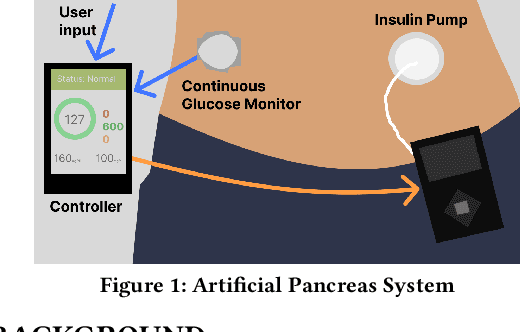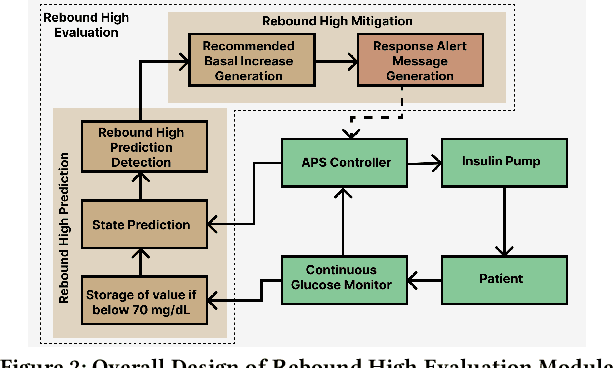Chloe Smith
KnowSafe: Combined Knowledge and Data Driven Hazard Mitigation in Artificial Pancreas Systems
Nov 13, 2023



Abstract:Significant progress has been made in anomaly detection and run-time monitoring to improve the safety and security of cyber-physical systems (CPS). However, less attention has been paid to hazard mitigation. This paper proposes a combined knowledge and data driven approach, KnowSafe, for the design of safety engines that can predict and mitigate safety hazards resulting from safety-critical malicious attacks or accidental faults targeting a CPS controller. We integrate domain-specific knowledge of safety constraints and context-specific mitigation actions with machine learning (ML) techniques to estimate system trajectories in the far and near future, infer potential hazards, and generate optimal corrective actions to keep the system safe. Experimental evaluation on two realistic closed-loop testbeds for artificial pancreas systems (APS) and a real-world clinical trial dataset for diabetes treatment demonstrates that KnowSafe outperforms the state-of-the-art by achieving higher accuracy in predicting system state trajectories and potential hazards, a low false positive rate, and no false negatives. It also maintains the safe operation of the simulated APS despite faults or attacks without introducing any new hazards, with a hazard mitigation success rate of 92.8%, which is at least 76% higher than solely rule-based (50.9%) and data-driven (52.7%) methods.
Short: Basal-Adjust: Trend Prediction Alerts and Adjusted Basal Rates for Hyperglycemia Prevention
Mar 16, 2023



Abstract:Significant advancements in type 1 diabetes treatment have been made in the development of state-of-the-art Artificial Pancreas Systems (APS). However, lapses currently exist in the timely treatment of unsafe blood glucose (BG) levels, especially in the case of rebound hyperglycemia. We propose a machine learning (ML) method for predictive BG scenario categorization that outputs messages alerting the patient to upcoming BG trends to allow for earlier, educated treatment. In addition to standard notifications of predicted hypoglycemia and hyperglycemia, we introduce BG scenario-specific alert messages and the preliminary steps toward precise basal suggestions for the prevention of rebound hyperglycemia. Experimental evaluation on the DCLP3 clinical dataset achieves >98% accuracy and >79% precision for predicting rebound high events for patient alerts.
 Add to Chrome
Add to Chrome Add to Firefox
Add to Firefox Add to Edge
Add to Edge